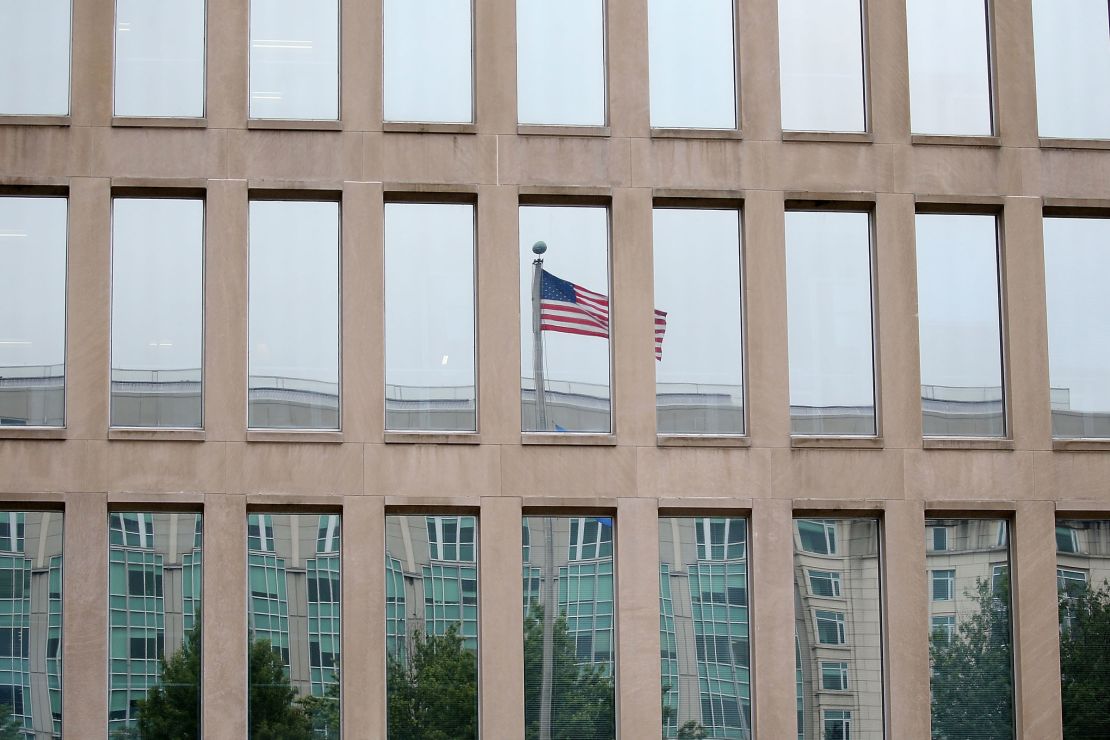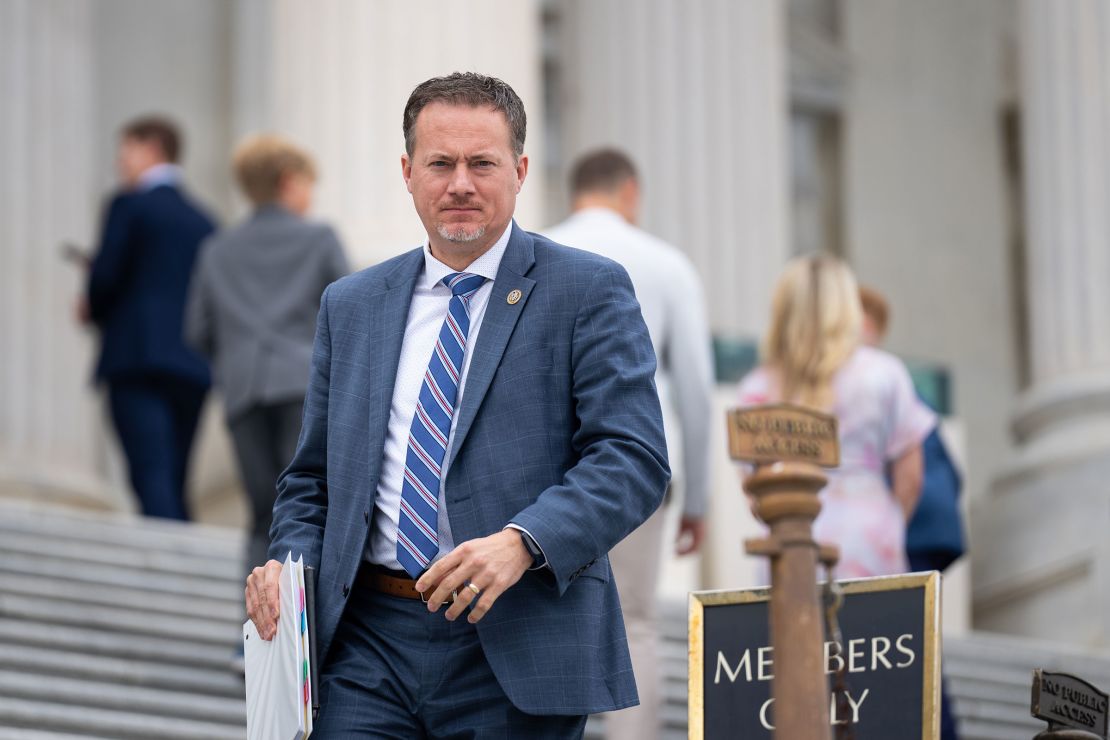CNN
—
Elon Musk and Vivek Ramaswamy, the two billionaires tasked with slashing government waste, are expected to recommend an agency-wide purge of spending on Diversity, Equity and Inclusion initiatives, three sources familiar with their plans told CNN.
That could include eliminating entire divisions involving DEI in agencies across the government, such as the Office of Equal Employment Opportunity, Diversity & Inclusion at the Department of Health and Human Services, and the Office of Civil Rights and Equal Opportunity Policy at the Department of Defense.
“Anything having to do with DEI will be gone,” said one of the people familiar with the plans for President-elect Donald Trump’s new Department of Government Efficiency, adding that Republicans in all branches of the incoming government are on board. “Everyone is committed to working together and rooting it out.”
Musk and Ramaswamy have made no secret of their disdain for DEI. Musk called it “just another word for racism” earlier this year.
“An efficient government has no place for DEI bloat. Time to DOGE it,” Ramaswamy posted last month.
Among DOGE’s first recommendations for action could be rescinding Biden-era executive orders related to DEI, according to one of the people familiar with DOGE discussions.
President Joe Biden expanded government workplace DEI protections by signing a number of executive orders widening them to include a broader group of Americans, from pregnant people and military spouses to rural communities and caregivers.
DOGE has no statutory authority and is essentially a presidential advisory commission that can make recommendations to Congress and the White House. But there are indications that targeting DEI-related initiatives will be a priority for empowered Republicans looking to cut spending across Washington.
Pete Hegseth, Trump’s pick for defense secretary, gave a laundry list of DEI-related initiatives that he says Trump has told him to remove at the Pentagon.
“Clean house of the woke crap,” Hegesth told Megyn Kelly in early December. “All that stuff. Climate stuff, the (Critical Race Theory), the DEI and genderism. Get rid of it.”

Supporters of government DEI programs worry about what this means for protections and opportunities for groups of people historically discriminated against. “It’s so important to always remember those three letters of the acronym and just realize what it actually is, which is about creating fair and equal opportunity for people, regardless of their identity and backgrounds,” says David Glasgow, executive director at the Meltzer Center for Diversity, Inclusion and Belonging at the NYU School of Law.
Republicans in Congress tend to share Ramaswamy and Musk’s hostile view toward DEI programs.
Georgia Rep. Marjorie Taylor Greene will chair a new House subcommittee to work on DOGE initiatives, along with House Oversight Chairman James Comer, both of whom have been critical of DEI.
“We support the concept of DEI,” said a Republican congressional source familiar with DOGE’s goal of eliminating DEI. But having offices specifically dedicated to DEI within government departments isn’t necessary, the person added.
A DOGE spokeswoman did not respond to CNN’s request for comment.
Any purge of DEI initiatives would affect hundreds of millions of dollars or more in proposed government spending— with potential ramifications for thousands of federal workers, contractors and the communities they serve around the country.
But wiping DEI initiatives out of the government could be a herculean task — in part because it’s next to impossible to track.
What is and isn’t considered DEI is subjective, leaving open the question about what will and won’t draw the attention of DOGE and what will ultimately be cut.
Calculating the total cost of DEI across the government would require going to each agency individually, according to the Government Accountability Office. “Even then, the information may not be available since there are no requirements for agencies to specifically collect or report that information,” the GAO said in response to inquiries from CNN.
The Office of Personnel Management, the federal agency in charge of leading DEI efforts across the federal government, declined to comment for this story, or provide any information on an overall figure for total DEI spending.

CNN analyzed the proposed budgets of 20 federal agencies. While each noted diversity initiatives in fiscal year 2024 and fiscal year 2025 budget requests, they didn’t all explicitly detail DEI expenditures.
Some federal departments have entire offices dedicated to DEI, like the ones at DOD and HHS. There are also programs across departments that include money for things such as minority-owned business development, as well as diversity recruitment and training efforts.
Price tags for DEI efforts vary widely across the government, but clues can be found in the amount of money agencies have publicly requested as part of the appropriations process.
HHS, for example, requested $113 million in its FY 2024 budget for “training for diversity” in the health workforce. That’s up from $102 million in 2023 and $94 million in 2022. The Department of Labor’s 2024 budget request included $515,000 to hire two full-time employees and provide for the necessary resources to “support diversity, equity, inclusion, and accessibility (DEIA) program and training initiatives.”
At the Department of Agriculture, to “establish The Diversity, Equity, and Inclusion office,” it requested $3 million that same year. In a more than 5% increase from FY 2023, the State Department requested $73.6 million for DEI for 2025.
In its FY 2025 budget request, the Department of Defense asked for $50.9 million to fund DEI related activities, according to a spokesperson. That amount would account for .006% of the department’s total budget request, the spokesperson said. The spokesperson also said that DOD’s Office of Civil Rights and Equal Opportunity has a staff of less than 15 people and that DEI issues are not their primary duty.
How this money is spent often goes well beyond workforce recruitment and training initiatives. For example, HHS spends some of its DEI funds on increasing the diversity of patients participating in its clinical trials as part of its cancer research.
HHS also aims to expand efforts to ensure diversity, equity and inclusion in nutrition and in health and food security research. It is also implementing strategies for vaccine equity in rural communities and advancing research that promotes maternal health equity.
Hundreds of civil rights and advocacy groups are preparing for the numerous legal fights that would come from Republican efforts to dismantle DEI. The American Civil Liberties Union told CNN it’s carefully reviewing all public statements from DOGE, the incoming Trump administration, as well as comments made on the campaign trail.
“We are crafting a legal strategy by finding all the ways their anti-DEI plans are in defiance of civil rights laws,” said ReNika Moore, director of the ACLU’s Racial Justice Program.
As DOGE works to identify how to wipe out DEI governmentwide, it will have a likely ally in the Department of Justice, where Trump’s pick to head the Civil Rights Division, conservative attorney Harmeet Dhillon, is expected to reverse Biden-era civil rights initiatives. Dhillon also isn’t likely to legally defend government agencies whose DEI programs are targeted, one of the sources said. A representative for Dhillon declined to comment.
DOGE will also have strong allies in Congress, where Republicans have already written at least one piece of legislation aimed at ending DEI protections. In June, Texas Rep. Michael Cloud and Ohio Sen. JD Vance, now the vice president-elect, introduced the “Dismantle DEI” Act.

If reintroduced and passed in the next Congress, the bill would not only wipe out federal DEI programs but also all of Biden’s DEI-related executive orders, putting an end to DEI training and overturning rules preventing current employees working on DEI issues from being reassigned to other duties or agencies.
The introduction of the bill kicked off a rapid response from civil rights groups, who say it would reverse hard-fought protections that benefit all Americans.
Disabled Americans are protected by many DEI provisions. And while congressional Republicans say they will still have their rights protected even after DEI is purged, their advocacy groups aren’t buying it.
“The Act would likely harm millions of disabled people,” the Disability Rights Education and Defense Fund, a legal advocacy group, wrote in a letter to congressional Republicans in November.
For now, civil rights and advocacy groups are focused on the fight to come and on reminding people of the importance and variety of benefits provided by DEI programs.
Demelza Baer, director of public policy for the Lawyers’ Committee for Civil Rights Under Law, a nonpartisan civil rights organization, says opponents have misrepresented DEI as something that benefits only a narrow group of Americans.
“Some people enjoy the benefits from programs that they don’t even realize would qualify under this umbrella,” said Baer. “Like women work mentoring programs, which is under this concept of DEI because it is providing support for a group of people who have been historically and continue to be discriminated against.”
Liz King, senior director at the Leadership Conference on Civil and Human Rights, a coalition of more than 200 civil and human rights organizations, says the basic concept of DEI is infused into “core American values,” something she argues its opponents have tried to diminish.
“Our opponents are looking to maintain this status quo of racial inequality, and so they are attacking this boogie man of an acronym they have come up with,” King said. “But we are talking about a core question of democracy.”
There is growing concern among disability and civil rights groups about how eradicating DEI programs will impact the enforceability of settled civil rights laws on the books.
“It is not possible to comply with our civil rights laws without also pursuing diversity equity and inclusion and accessibility,” said King. “Challenges to DEI allow the violation of our civil rights laws and that’s why we’re going to see them in court.”
CNN’s Emily R. Condon and Shoshana Dubnow contributed to this report.